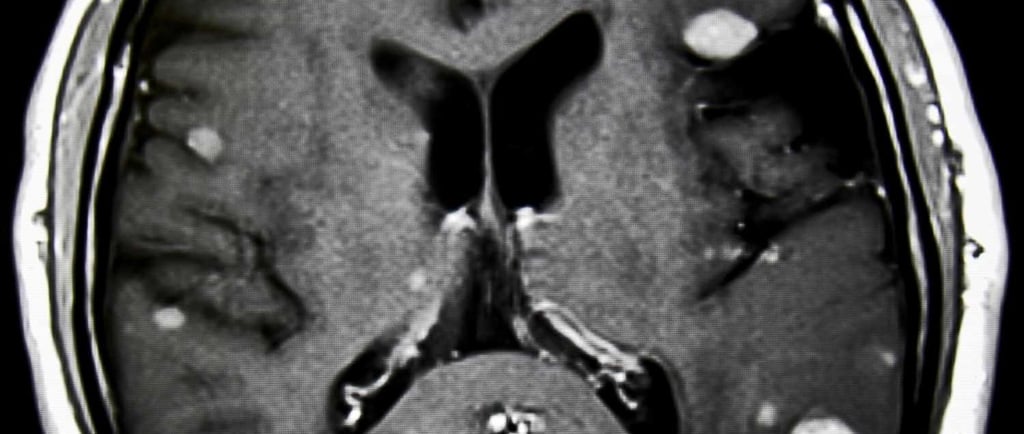Understanding Brain Metastases and Leptomeningeal Metastases: What Patients Need to Know
At Charis Neurology, we believe that early recognition and comprehensive care can make a meaningful difference in managing complex neurological conditions. Two of the most challenging scenarios we encounter involve brain metastases and leptomeningeal metastases. Below, we’ve outlined some key information and insights on these conditions to help patients and loved ones understand what they are and how they’re treated.
Dr. Sherif Makar
2/13/20252 min read


What Are Brain Metastases?
Definition: Brain metastases occur when cancer cells spread from a primary tumor elsewhere in the body (e.g., lung, breast, skin) to the brain.
Symptoms: Headaches, seizures, changes in speech or vision, difficulty with balance or motor coordination, and cognitive impairment.
Diagnosis: Doctors typically use advanced neuroimaging, such as MRI, to detect the presence of metastatic lesions. Additional evaluations may include CT scans and other testing to locate the cancer’s primary site if it’s not already known.
Leptomeningeal Metastases (LM)
Definition: Sometimes called “carcinomatous meningitis,” leptomeningeal metastases occur when cancer cells spread to the thin layers of tissue (the meninges) surrounding the brain and spinal cord.
Symptoms: Can include severe headaches, neck stiffness, confusion, cranial nerve deficits (vision, hearing changes), and limb weakness or numbness.
Diagnosis: Usually involves MRI of the brain and spine, plus a lumbar puncture to analyze cerebrospinal fluid (CSF) for cancer cells.
Treatment Approaches
Radiation Therapy
Stereotactic Radiosurgery (SRS): Delivers precisely targeted radiation to metastases without affecting surrounding tissue.
Whole-Brain Radiation Therapy (WBRT): Treats widespread metastatic disease within the brain.
Surgery
For accessible tumors causing increased intracranial pressure or neurological symptoms, neurosurgery may be an option.
Systemic Therapies
Chemotherapy or targeted therapies that can cross the blood-brain barrier can help control cancer growth.
Immunotherapy has also shown promise in certain types of metastatic disease.
Intrathecal Therapy (for LM)
Delivery of chemotherapy or targeted agents directly into the cerebrospinal fluid can help reach cancer cells in the meninges.
Supportive Care
Steroids to reduce swelling or edema in the brain.
Seizure medications to control or prevent seizure activity.
Physical and Occupational Therapy to maintain quality of life.
What To Ask Your Neurologist or Neuro-Oncologist
Treatment Goals: Are we aiming to reduce symptoms, improve quality of life, or potentially slow disease progression?
Side Effects: What common side effects should you expect from radiation, surgery, or drug therapies?
Clinical Trials: Are there any ongoing trials that might benefit your specific type of metastatic cancer?
Multidisciplinary Team: How will your care be coordinated between neurology, oncology, and other specialists?
How Charis Neurology Can Help
At Charis Neurology, our neuro-oncology approach focuses on personalized care plans that consider each patient’s overall health, type of primary cancer, and unique goals. This includes:
Advanced Diagnostics: High-resolution MRI and specialized lab testing.
Collaborative Care: We work alongside oncologists, neurosurgeons, radiologists, and other experts to ensure a comprehensive strategy.
Supportive Services: Infusion therapies, symptom management, and rehabilitative care.
Looking Ahead: Prevention and Ongoing Research
While not all brain metastases or leptomeningeal metastases can be prevented, regular follow-up and imaging are critical for patients with known cancers. Ongoing research is exploring better ways to detect and treat metastatic disease at earlier stages. From targeted therapies to emerging immunotherapeutic approaches, there is reason for optimism in the years ahead.
If you or a loved one have questions about brain or leptomeningeal metastases, please reach out to Charis Neurology. We’re dedicated to providing the highest level of care and support to help you navigate these complex conditions. Together, we can work toward the best possible outcomes for every patient.
Disclaimer: This blog post is intended for informational purposes only and should not replace medical advice. Always consult your healthcare provider for diagnosis and treatment recommendations specific to your situation.
Contact Us
Serving Central Florida
Seminole County
Lake Mary, Sanford, Longwood, Oviedo, Altamonte Springs, Winter Springs, Casselberry, Heathrow, Wekiwa Springs, Forest City, Sanlando Springs
Volusia County
Deltona, Orange City, DeBary, Lake Helen
Orange County
Orlando, Winter Park, Maitland, Apopka, Eatonville
Patient Center


Where precision medicine meets genuine compassion. We provide end-to-end diagnostics and treatment for the entire family under one roof.

© 2025 Charis Neurology. All rights reserved.
If you are experiencing a medical emergency, please dial 911 or go to the nearest emergency room. Do not use this website for urgent medical needs.
